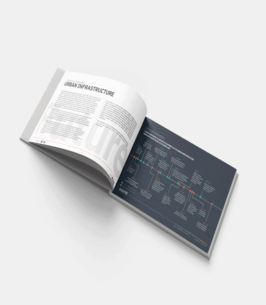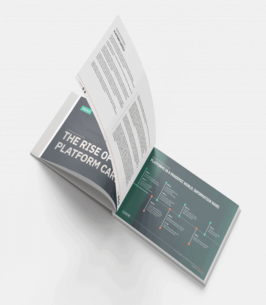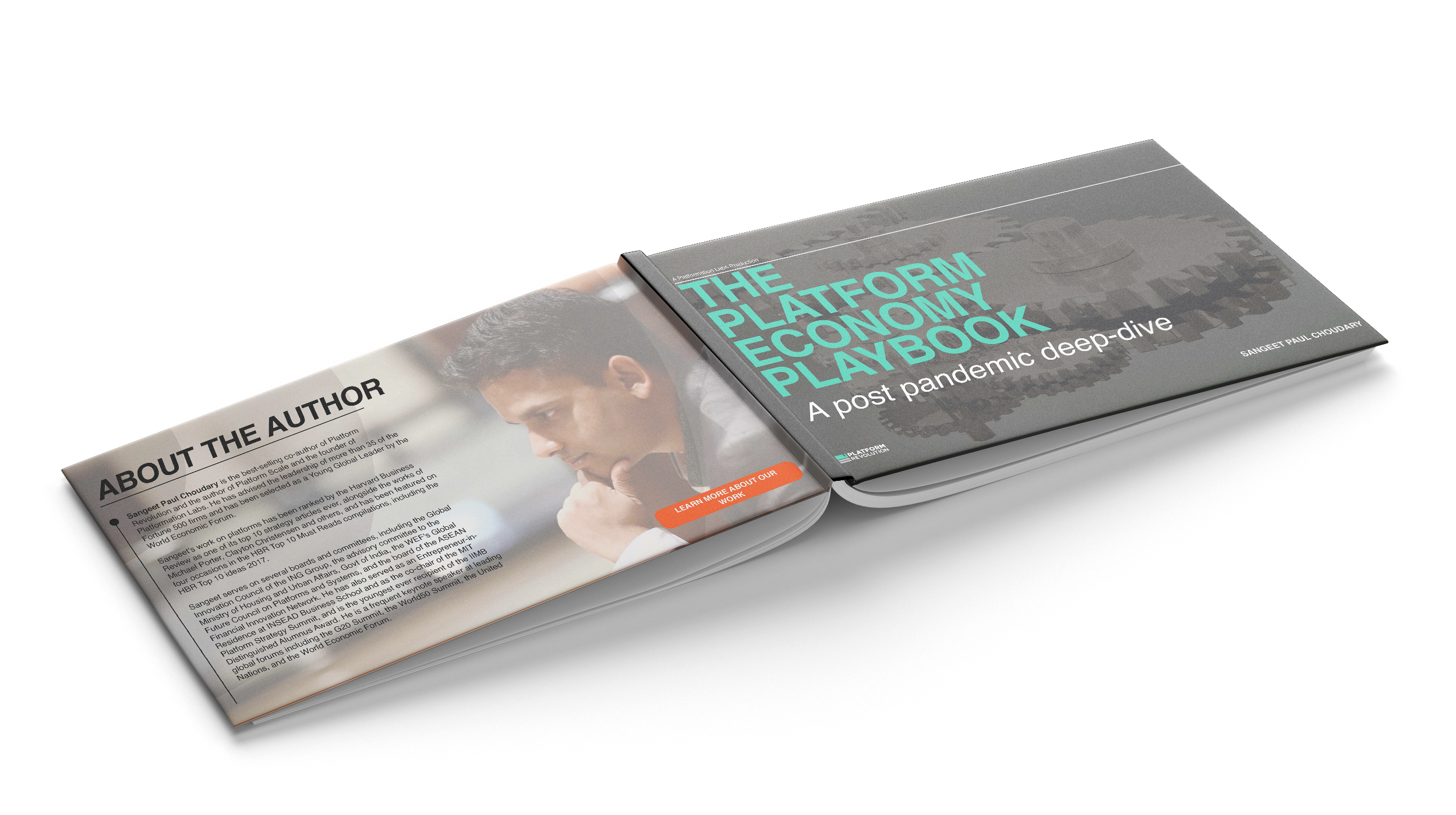Digital Transformation
Platform Regulation: Shaping regulation to your advantage
How can platforms build industry standards and influence future regulation in their favor?
This article is part of the Digital Platforms hub
Platforms often operate in market conditions which are not fully regulated. In addition to responding to regulation, platform firms can proactively shape the regulatory environment to their benefit. Standards development is a common approach which platform firms use to proactively shape the industry and regulatory environment. Standards are specifications that determine the compatibility of different technological components and increase the ability of firms to coordinate their activities, leading to greater coordination across the industry value chain. Greater usage of the standard leads to superior inter-firm coordination, driving further adoption of the standard. This eventually leads to “winner-take-all” outcomes where a single standard may dominate.
Platform firms often engage in open standards development when entering a new industry. Open standards development may help change the competitive dynamics in an industry by commoditizing incumbent advantages. In the healthcare industry, incumbents – particularly EHR (electronic health record) vendors – resist interoperability to maintain a stranglehold over patient data and operate a closed partner ecosystem around it.
Standards are specifications that determine the compatibility of different technological components and increase the ability of firms to coordinate their activities, leading to greater coordination across the industry value chain.
Feel Free to Share
Download
Our Digital Platforms Hub
- Leverage our extensive library of ecosystem maps created across different industries
- Identify the accelerating forces to compete in ecosystems
- Design a structured approach to winning with digital platforms
- Determine potential value pools and digital platform models in your industry
Platform organizations entering the industry are working together to promote open standards, to break this data stranglehold and shape regulation towards greater data interoperability. In the USA, the adoption of FHIRs (Fast Healthcare Interoperability Resources) creates standards for data exchange, allowing developers to build APIs to access datasets across different systems. This drives greater data sharing and interoperability, driving the rise of platform-based models. Google and Amazon have joined efforts to support FHIRs through Project Blue Button, which aims to make it easier for patients to view and download their health records. They are also implementing the standard in their cloud infrastructure and consumer-facing applications. Google’s Cloud Healthcare API provides a solution for storing and accessing healthcare data in FHIR format, while Apple has implemented FHIRs in its consumer-facing Health Records.
As these firms invest in driving open standards adoption, they play an active role in shaping future regulation, commoditize traditional incumbent advantage, and proactively align their future competitive advantage with the evolving regulatory landscape.
👈 Previous article related Digital Platforms Next article related to Digital Platforms👉
Frequently Asked Questions
In industries resistant to interoperability, how do platform firms reconcile open standards development with proprietary interests?
Platform firms navigate the tension between promoting open standards and protecting their proprietary interests by carefully strategizing their involvement in standards development. While they recognize the benefits of interoperability and industry coordination, they also prioritize maintaining a competitive edge in the market. This often involves striking a balance between contributing to open standards initiatives and safeguarding their core technologies and intellectual property. Additionally, platform firms may engage in negotiations and collaborations with other industry stakeholders to find common ground on interoperability while safeguarding their unique value propositions.
How can platform firms prevent “winner-take-all” effects from hindering competition and disadvantaging smaller players in open standards development?
To mitigate the risk of “winner-take-all” outcomes resulting from open standards development, platform firms employ various tactics to ensure a level playing field and foster competition within the ecosystem. For instance, they may advocate for the inclusion of mechanisms that promote diversity and innovation, such as interoperability requirements for different standards or guidelines for fair access to data and resources. Additionally, platform firms may invest in initiatives aimed at empowering smaller players and startups to participate in the ecosystem, thereby fostering a more dynamic and inclusive competitive landscape.
How do platform firms shape regulation beyond FHIR support? How do they balance lobbying complexities with industry and societal needs?
Beyond supporting open standards like FHIRs, platform firms employ diverse strategies to influence future regulation in their favor. This may include engaging in regulatory lobbying efforts, participating in industry associations and working groups, and leveraging their expertise and resources to shape policy discussions and proposals. Moreover, platform firms may collaborate with other stakeholders, including governments, academia, and civil society organizations, to advocate for regulatory frameworks that foster innovation, protect consumer interests, and promote fair competition. By taking a proactive and collaborative approach to regulatory advocacy, platform firms seek to align their interests with broader industry goals and societal needs, ensuring that regulatory developments benefit both their businesses and the ecosystem as a whole.
State of the Platform Revolution
The State of the Platform Revolution report covers the key themes in the platform economy in the aftermath of the Covid-19 pandemic.
This annual report, based on Sangeet’s international best-selling book Platform Revolution, highlights the key themes shaping the future of value creation and power structures in the platform economy.
Themes covered in this report have been presented at multiple Fortune 500 board meetings, C-level conclaves, international summits, and policy roundtables.
Subscribe to Our Newsletter













